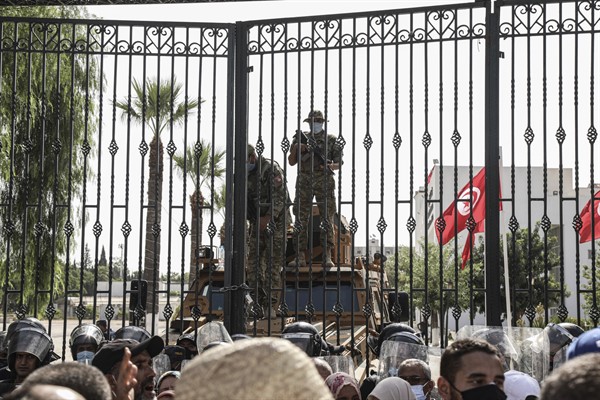Editor’s Note: This is the web version of our subscriber-only weekly newsletter, Middle East Memo, which takes a look at what’s happening, what’s being said and what’s on the horizon in the Middle East. Subscribe to receive it by email every Monday. If you’re already a subscriber, adjust your newsletter settings to receive it.
Tunisian President Kais Saied suspended parliament Sunday night and placed travel bans on opposition politicians. Reports quickly documented the usual authoritarian playbook: raids on journalists, threats to jail those who impugn the state, and a raft of edicts concentrating judicial, legislative and executive power in his own hands. Saied’s decisions effectively terminate a decade of democracy in Tunisia, but his coup could still be reversed, if enough Tunisian constituencies rally against renewed dictatorship—and if they receive international backing.
Here, the United States and the European Union can play a role, as they both have considerable leverage in Tunisia, which depends on Western aid and investment. U.S. President Joe Biden has made democracy promotion a centerpiece of his administration, proposing a global summit of democracies and arguing, correctly, that no country’s democracy is immune to erosion amid the spreading appeal of authoritarianism.

